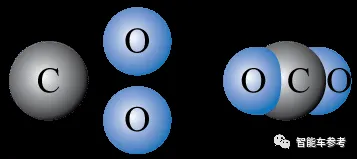
Solar Energy Corporation of India has once again attempted a tender for renewable energy + storage projects. This time, it has issued a tender with special terms that could lead to lower offers and attractive purchase rates for buyers.
Specifically, Solar Energy Corporation of India (SECI) has offered a tender for 1.2 GW of renewable energy + storage projects for developers. Under the terms of the tender, developers can set up wind, solar or hybrid projects, and any project should be between 50-300 MW in size, while group companies can bid for projects with a maximum capacity of 600 MW.
The tenders are issued in accordance with central government policy and are part of the inter-state transmission system plan, which allows bidders to choose their own sites for construction. Solar Energy Corporation of India will look for distribution companies interested in purchasing power from these renewable energy + storage projects, with which it will then enter into long-term power purchase agreements for up to 25 years.
While SECI and some other states have also experimented with renewable energy + storage tenders earlier, none of them have had any substantial success. Previous large-scale tenders issued by Solar Energy Corporation of India did not see financing bids after the bids were not fully subscribed or the possible financing bids were so high that they could not be made attractive to distribution companies.
At that time, Solar Power Corporation of India offered tenders for energy storage projects totaling 300 MW at two solar power plants. However, the tender was eventually forced to be canceled due to the unavailability of financing.
The Indian government seems to have learned from its mistakes this time around and is now expanding the range of energy storage technologies that project developers can use. This new tender allows project developers to use any energy storage technology, including battery energy storage systems, pumped storage systems, mechanical and chemical systems, or combined energy storage systems.
Two months ago, the Ministry of New and Renewable Energy (MNRE) asked project developers to submit proposals for gravity energy storage projects. Project developers may consider pumped storage or mechanical energy storage technologies to maintain lower cost operations.
The Indian company Greenko Energy Holdings is developing two pumped storage projects in the states of Karnataka and Andhra Pradesh. Each project should install 2 gigawatts of wind and 2 gigawatts of solar capacity.
One of the key clauses that SECI has included in this tender for the first time relates to allocation of capacity on the basis of energy tariff rates offered by the developer during peak hours. The developer shall offer a fixed tariff of Rs 2.70/kWh during off-peak hours, i.e., between 9 a.m. to 6 p.m. and midnight to 6 a.m.; and 300 MWh for every 100 MW of capacity during the peak hours of 6 p.m. to midnight and 6 a.m. to 9 p.m.
The developer shall start the construction of the project within 18 months from the date of signing the power purchase agreement and shall complete the construction and commission the project within a maximum period of 24 months. In some cases, the developer is not penalized if the developer is not able to commission the project as per the above provisions due to transmission infrastructure issues.
(Source of article: cable.com)
[Zhongshun Xinneng Marketing Department September 26, 2019 Responsibility: Xiao Li]
* Reproduced for the purpose of transmitting more information, and does not mean that we endorse its views and are responsible for its authenticity.




